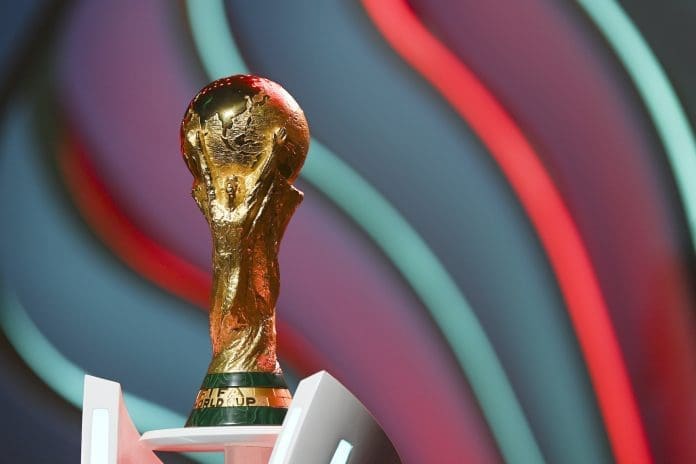Ghana’s Black Stars have officially qualified for the 2026 FIFA World Cup, joining a growing list of nations that have secured their places at football’s expanded global showcase featuring 48 teams for the first time in history.
The Black Stars confirmed their qualification on Sunday, October 12, with a 1-0 victory over Comoros that saw them finish top of Group I with 25 points. This marks Ghana’s fifth World Cup appearance and caps an impressive qualifying campaign under Coach Otto Addo.
For the first time in World Cup history, 48 nations will compete at the tournament scheduled across the United States, Mexico, and Canada from June 11 to July 19, 2026. The expanded format has opened new opportunities for countries across all confederations, intensifying competition while offering more nations a chance to participate.
Africa’s representation at the tournament continues growing, with Ghana joining other qualified nations from the continent. The Confederation of African Football will send a record nine teams to the World Cup, along with one additional nation that could qualify through intercontinental playoffs. This increased allocation reflects FIFA’s commitment to expanding global participation.
The qualification journey has been grueling, with 206 competing nations beginning the process nearly two years ago. As various continental campaigns enter their final phases, the picture of which teams will compete in North America becomes clearer with each passing week.
In Asia, several traditional powerhouses have already secured their spots. Australia, Iran, Japan, Jordan, Uzbekistan and South Korea have directly qualified, demonstrating the strength of Asian football and the continent’s growing influence on the global stage. These nations will represent the Asian Football Confederation alongside other teams still competing for remaining slots.
South America has completed its qualifying rounds, with Argentina, Brazil, Colombia, Ecuador, Paraguay, and Uruguay booking direct spots. The CONMEBOL region’s qualification process proved characteristically competitive, with every match carrying significant weight in determining final standings.
The three host nations, the United States, Mexico, and Canada, receive automatic qualification as tournament organizers. Their guaranteed participation ensures strong North American representation while allowing CONCACAF’s other competitive slots to be contested among remaining regional teams.
European qualification remains ongoing, with traditional football powerhouses competing intensely for available spots. The UEFA qualification format features twelve groups, creating numerous high stakes matches as nations battle to secure their places at the expanded tournament.
Ghana’s qualification represents a significant achievement for West African football and reignites hopes of a deep tournament run. The Black Stars’ previous World Cup appearances include memorable moments, particularly their 2010 quarterfinal run that nearly made them Africa’s first semifinalist.
Coach Otto Addo and his squad are expected to embark on an Asian tour in November, playing crucial friendly matches as preparation intensifies. These matches will provide valuable experience against varied opposition styles while allowing the technical team to assess squad depth and tactical options.
The expanded 48 team format changes tournament dynamics significantly. The group stage will feature sixteen groups of three teams each, requiring different strategic approaches compared to the traditional four team groups. Teams must adapt quickly to this new structure while maintaining competitive edge.
Ghana’s qualification campaign showcased consistent performances across ten matches, with the team demonstrating both attacking prowess and defensive solidity. The Black Stars’ plus sixteen goal difference heading into their final match reflected their dominance throughout Group I.
For African football, having nine guaranteed spots plus a playoff opportunity represents unprecedented representation at the World Cup. This expanded presence allows the continent to showcase its growing talent pool while providing more nations with invaluable tournament experience.
The qualification process continues across other confederations, with several high profile matches remaining before all 48 spots are filled. Nations that have dominated previous World Cups face no guarantees in the expanded format, as increased competition creates opportunities for surprise qualifiers.
Ghana’s football community celebrates this achievement while recognizing the challenges ahead. Qualifying represents just the first step toward making a meaningful impact at the tournament itself. The Black Stars must now focus on preparation, squad selection, and tactical refinement.
The December 5, 2025 draw at the John F. Kennedy Center for Performing Arts in Washington, D.C. will determine group stage matchups. This draw represents a crucial moment when Ghana discovers which opponents they’ll face in their quest to advance beyond the group stage.
Ghana’s participation continues the nation’s proud World Cup tradition while offering a new generation of players the opportunity to represent their country on football’s biggest stage. The expanded format provides additional motivation, as more teams advancing from group stages creates increased possibilities for deep tournament runs.
As qualification campaigns conclude over the coming months, the final list of 48 participating nations will reflect football’s truly global nature. Ghana’s place among these teams confirms the Black Stars’ status as one of Africa’s football powers and sets the stage for another chapter in the nation’s World Cup story.
Source: newsghana.com.gh











